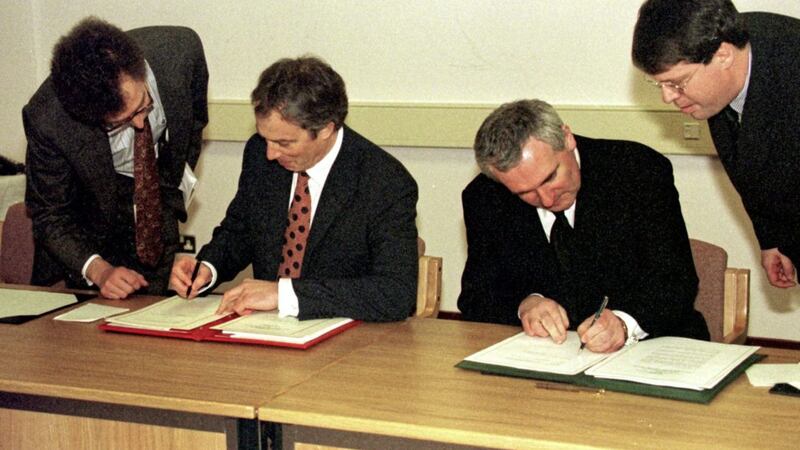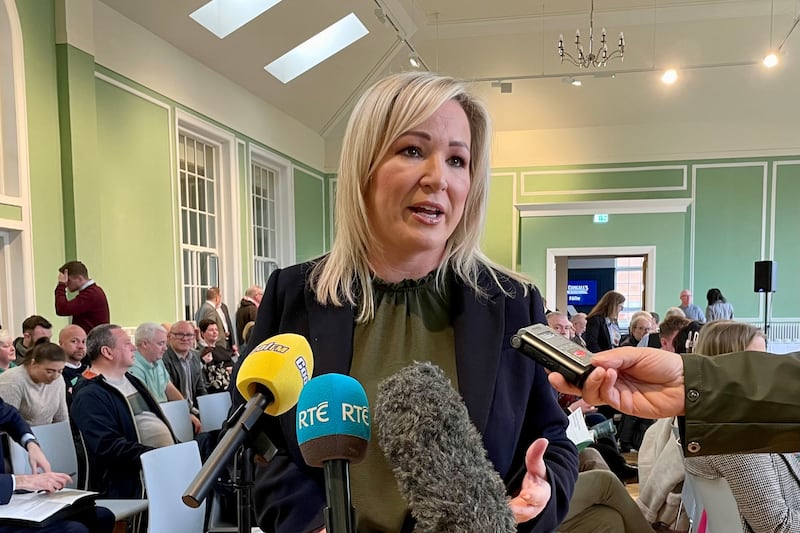Arrogance is the enemy of aspiration. As we enter 2022, the diversity of aspirations within our society needs genuine room to gently breathe, thoughtfully, patiently.
Wise and varied voices are needed around sensitive issues like reconciliation and constitutional discussions. If not, honourable ideals could be recklessly damaged.
In repeated surveys, the north’s public prioritises shared issues of social and economic impact. The ‘totality of relationships’ also matters deeply. Ireland’s destiny will always have mutual reliance with the UK. And the UK’s future – whatever it becomes – will always need partnership with Ireland.
Northern Ireland is where these interests intersect. Brexit is where they’ve broken down. We’ve learned that isolationism can’t work - on either island of the Irish Sea.
That’s why Ireland-UK governmental relationships need reinvigorated. It’s why Irish-British identities - and ‘others’ - need rights-based reconciliation in the north. Relationships, rights and reconciliation must be key strategic priorities, underpinning commitment to long-term political stability. Without these priorities, constitutional conversations on either island can never be fully formed.
Policies are academic without people. And our peoples’ interests are inextricably linked and interdependent. So the ‘spirit of ’98’ is again needed to navigate the next 25 years. (For clarity, that’s ‘1998’.)
Ireland’s shared future – one of honest reconciliation – must start with dignifying our diversity, not dictating narrow end-games; with humbly listening to others’ hearts and hurts, not lecturing or patronising them; with leadership that gifts boundless generosity, not relentless groupthink; with patience in engagement, not driven by arbitrary timelines; and with the plain truth that genuine ‘conversations’ are never predetermined.
Ireland’s shared future starts with fundamental changes in each of ourselves, not in constructing binary challenges for others. Self-determination is about ‘self’ - not just ‘society’. It is philosophical - not just legal.
Remember what the 1998 agreement’s participants actually declare (present tense) in the context of “the tragedies of the past” and “legacy of suffering”:
“…we firmly dedicate ourselves to the achievement of reconciliation, tolerance, and mutual trust, and to the protection and vindication of the human rights of all… We are committed to partnership, equality and mutual respect as the basis of relationships within Northern Ireland, between North and South, and between these islands.” (…)
“We acknowledge the substantial differences between our continuing, and equally legitimate, political aspirations. However, we will endeavour to strive in every practical way towards reconciliation and rapprochement within the framework of democratic and agreed arrangements.”
All the participants are avowedly still committed to striving in “every practical way” to deliver the agreement - partnership, equality and respect - in all of its parts “towards reconciliation and rapprochement”. That’s today, in 2021.
The agreement’s genius is this: if the participants (governments, parties, and wider society) focus fully on these interlocking commitments - patiently, practically and generously - the foundation will be created for younger generations to determine their own destiny. This is our planning permission, endorsed by all-island referenda.
And it’s a monumental prize for long-term peaceful progress - to give younger generations the agency and freedom to design their own shared future in ways that we haven’t even considered, unpolluted by the sectarian shibboleths of those who controlled the past.
A great lesson of the campaign for fair employment (occasionally sneered at as ‘reformist’) is that - after internal and external pressures over 30 years - the legislative and structural improvements conceded by the UK government in 1989 and 1998 have since framed not just fairer participation in the workforce. One major by-product is that – in those social sectors where employment equality is now stronger – shared and reconciling communities have begun to emerge, educationally, economically and socially.
The priority of improving Ireland-UK relationships needs long-term intergovernmental engagement. This management framework will take years of heavy lifting by officials and others, but rapprochement will be achieved.
And the priority of rights-based reconciliation - not least for younger people in places like the Shankill Road and Springfield Road – urgently needs the provision of practical leadership today, not just the promised scent of constitutional roses tomorrow.







